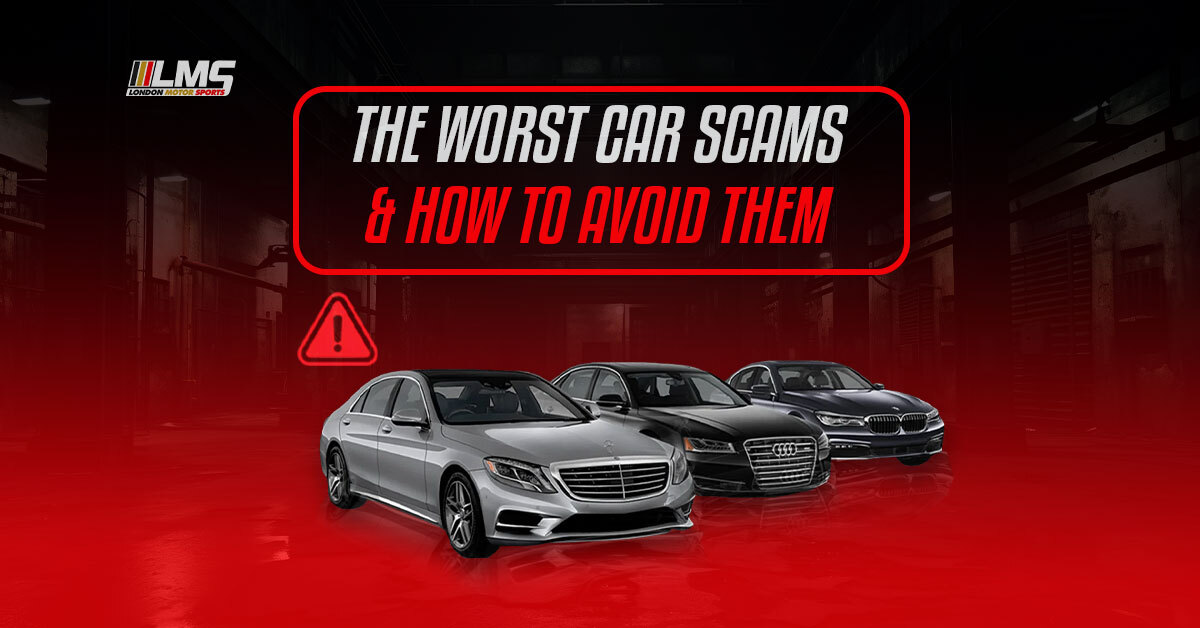
Buying a car, whether new or used, is a big decision and a major investment. Take time and check the vehicle’s condition before making an informed decision. In the United Kingdom, car scams are increasing day by day. From clocked mileage to cloned vehicles, people lose thousands of pounds every year to dishonest sellers. In this post, we’ll explore some of the worst car scams in the UK, with real-life examples, and give you smart tips to avoid becoming the next victim.
Cloned Car Scams
These types of car buying scams are very common in the United Kingdom. Scammers sell the stolen cars by stealing the identity of the registered legitimate vehicle. You can face legal issues in case you purchase a cloned car. The vehicle can be seized and sent back to the rightful owner, and you may face potential criminal charges.
Real-life Example
According to the BBC news, in Greater Manchester, criminals used eBay to sell cloned and stolen vehicles. Unfortunately, A retired police officer lost £17,000 by purchasing a cloned Mercedes C-Class. The details of the car were altered, and later it was confirmed that the vehicle was stolen and had been cloned.
How to Avoid It:
Avoiding such scams is crucial to protect yourself from major financial losses. Make sure you check the VIN from multiple locations of the car, such as the dashboard, door and engine bay. Additionally, check the V5C logbook and make sure the seller’s address is matching with it. You can also use an HPI check to know if the car is stolen, written off or is alright to purchase. By following these tips, you can avoid car buying scams in uk.
Car Clocking Scams
This is an illegal practice, where a scammer winds back the odometer of the car to show the car has covered fewer miles. They do this scam for the sake of grabbing the attention of potential buyers and to enhance their resale value. They connect the odometer of the car with a specialised device that alters the readings.
Real-Life Example
According to the Birmingham newsroom, in 2011, Birmingham car trader Asif Mahammed was jailed due to a car clocking scam for four years. He was found guilty for clocking over one million miles on the vehicles he traded. He provided false service histories and MOT documents to the customers.
How to Avoid This Scam:
First of all, use the HPI check to verify the mileage and history of the car. Inspect the car wisley and review the history of the car, and do not forget to cross-check it.
Fake Online Listing Scams
In this case, scammers create fake online listings for non-existent cars. And shows the attractive prices to attract the customers. This is a trick to lure the buyers for sending the full payments in advance. Such car scams can be quite risky.
Real-Life Example:
According to Wiltshire Live news, a man was duped into paying a deposit for a car he found on an online marketplace. This scammer showed himself as the owner and showed different videos of the car for selling purposes.
How to Avoid It:
Follow the following tips to avoid this scam:
Must meet the seller in person before making any final decision. View the car in real life and then decide whether you should purchase it or not. Use reputable platforms to purchase the cars.
DVLA Scams
DVLA Car Scams are also very common in the United Kingdom. This scam involves fake emails and messages claiming to be from the DVLA. In these emails or messages, they send a malicious link and claim your vehicle tax is due. They can also demand your bank details. Also, beware that this website may look like the original DVLA, as they use similar logos and designs.
Real Life Example
According to Lincolnshire, a person named Graham received a fake DVLA email. In this email, he was asked to verify his driving licence details. After the scammers impersonated his bank, they convinced him to send his money to a safer account. He lost £7,000 before realising it was a scam.
How to Avoid It:
First of all, keep in mind that DVLA does not ask for bank details. So if you receive any message regarding bank details, do not respond.
Car Accident Scams
Car accident scams are also very common in the United Kingdom. Some of the most common car accident scams are as follows:
Crash for Cash
It refers to insurance fraud, in this case, people stage an accident intentionally to gain financial compensation.
Flash for Crash
In this case, The scammer flashes their headlights to coerce you into pulling out at a junction. After you pull out at the junction, he crashes into you and denies flashing.
Check out our expert advice on: Why Inspecting Used Car Before Buying is Important
Bottom Line
To sum it up, Car scams are a growing concern for UK residents. So, it’s essential to be vigilant at the time of buying a used car. To avoid these scams, you can rely on trusted dealers like Trade London Motor Sports. At Trade London Motor Sports, we offer transparent and legitimate paperwork. By choosing a reliable platform, you can avoid the growing scams and get the desired car.
